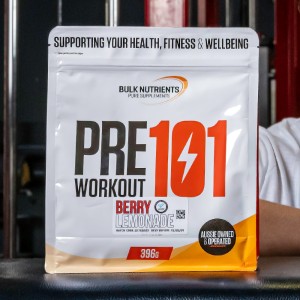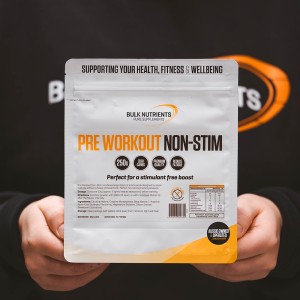What Makes a Good Pre Workout?
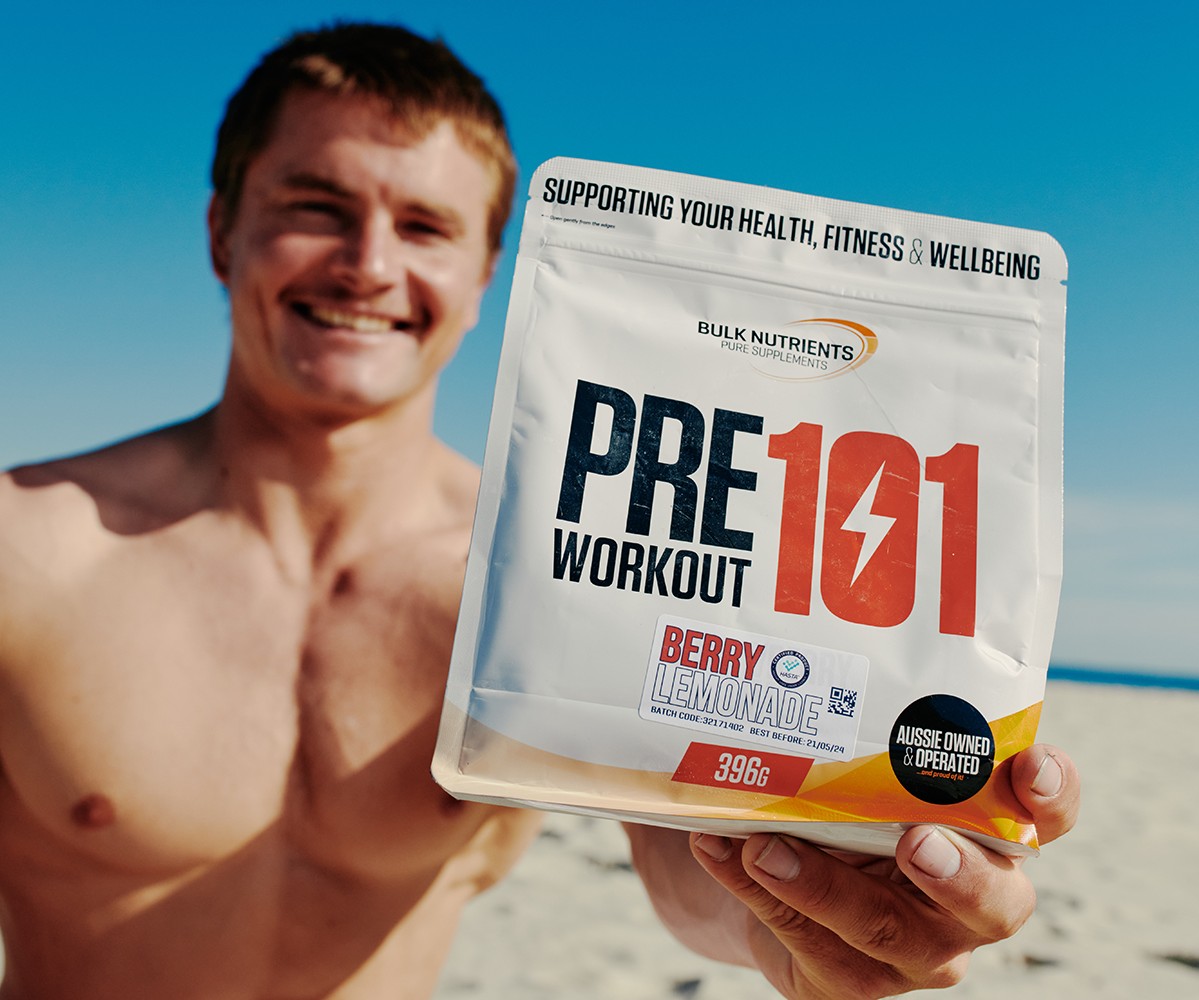
Everything you need to know about pre workouts!
If you’re reading this article, you’re most likely a health-conscious trainer, looking to improve your performance and physique, but rather than just clicking on any link that promises to shred “so many kgs of fat” or similarly add a ridiculous amount to your bench almost instantly, you are taking the time to research the subject and ingredients carefully and intend to read as widely as possible. Good for you!
Now... as a discerning consumer, the very notion of a drink that promises to increase performance quickly should pique your scepticism, as this runs contrary to one of the immutable laws of strength and athletic training that we are all too aware of.
It usually takes time to see results.
The time by which someone can achieve the physique they want or win a strength competition can take years or even decades (depending on your personal goals)… a time span similar to building a stone house by hand or a growing bonsai tree, coupled with a dedication that would sometimes make even Mr Muyagi at times frustrated with plateaus in progress.
And like magic, a simple drink promises to create almost instant performance gains and improve your workout?
The purpose of this article is to show that some of these products do in fact have the ability to improve your workouts in a comparatively short time period, how to take them and to discuss their ingredients which may help you achieve your fitness goals.
What does a pre workout do?
Before we get into the nitty-gritty, let’s actually establish the aim of a pre workout and when they are consumed, for those unfamiliar with the concept. A good pre workout supplement intends to be an aid to assist during workouts (and also the all-important post-workout recovery) and is usually taken 0-60 mins before the commencement of the workout. The time period quoted above is by no means an “industry standard” definition, more so an arbitrary time period to distinguish the specialised pre workout supplement regime that many trainers follow, apart from their usual dietary intake.

When should I take a pre workout supplement?
This is a complex question and will be highly dependent on the individual, their dietary habits and the actual ingredients in their pre workout supplement.
However on an empty stomach, generally peak plasma levels occur from most compounds in an hour or so. That being said, the effects of some of the ingredients in popular pre workouts, such as caffeine or phenethylamines, may be experienced very shortly after ingestion (<15 mins) which is when many begin their workout. The rule of thumb here is, find a product that works for you, experiment with the period of time before commencing training and see what provides the result you’re after.
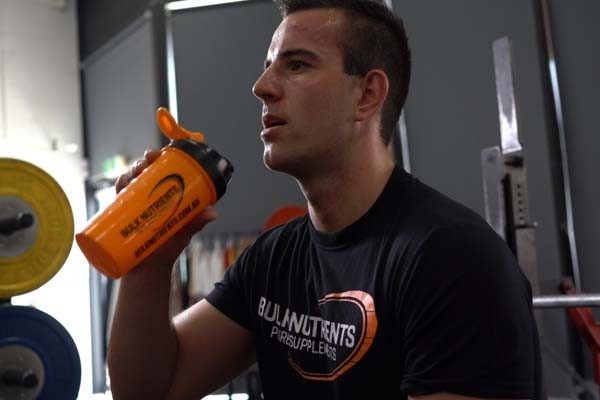
What should a good pre workout contain?
The way to assess pre workout products on the market, is to determine if they contain compounds that stimulate the CNS (central nervous system). This stimulation promotes feelings of energy and wakefulness. Then to assess ingredients that provide other effects such as blood flow to the muscles, increasing endurance, reducing DOMs or mitigating stress.
First, we will explore the perhaps less contentious, “non-stimulant” ingredients. If the reader has no interest in these, feel free to scroll to the Popular stimulant ingredients in the pre workouts section below.
These are the key non-stimulant pre workout ingredients...
AAKG - Arginine Alpha Ketoglutarate
AAKG is a combination of the amino acid arginine and the metabolic intermediate alpha-ketoglutarate. Arginine is involved in the production of nitric oxide, which improves blood flow and oxygen delivery to the muscles. This provides the 'muscle pump' during workouts, and can support increased output.
Due to the increased blood flow, and therefore oxygen replenishment, AAKG can reduce muscle soreness and inflammation after intense sessions, and support muscle preservation.
Beta Alanine
This ingredient, common in many quality pre workouts is an amino acid precursor and has been well documented to reduce fatigue and increase short term endurance in many studies. When metabolised by the body into carnosine, beta alanine reduces the acidity which is experienced in exercise due to lactic acid build-up.
Where this becomes of interest is that this may improve short term endurance (say in the 0-60 second range) which may enable you to achieve an extra rep or two on those hard sets – which could be a personal best!
A standard dose for beta alanine is 2-5g a day. It should be noted that excess ingestion of beta alanine can cause a tingling sensation named paraesthesia caused by activation of the peripheral nerves. This can be mitigated by splitting the doses before the training session with no subsequent reduction in any beneficial effects.
Citrulline Malate
This important amino acid can be hard to obtain through diet alone, as it is not found in large amounts in a normal diet – which is a shame as this amino acid improves the ammonia recycling process and nitric oxide metabolism.
Theoretically, anything which improves these processes should reduce fatigue and/or increase performance, but this hasn’t been confirmed to a satisfactory degree in any study to date - however, some studies show promise.
The main benefit as to why this should be included in your pre workout supplementation though is a noted benefit in reducing delayed onset muscle soreness, or DOMS, which whilst many of us find a somewhat satisfying indicator of a nice, hard training session, is ultimately something we want to recover from faster… so we can grow and then train again sooner!

L Tyrosine
This amino acid is found in many dietary sources, such as fish and eggs. It should be stated that this formally classified as a non-essential amino acid, meaning that under normal conditions, your body can produce enough of it from other amino acids, if enough hasn’t been consumed from the diet. This may raise questions as to why this amino acid needs to supplemented at all, given its ability to be made “in-house” - however, the body only has a limited capacity to do this, which may be exceeded under very strenuous training conditions.
The effect of L Tyrosine in the body is important for the role it plays in mitigating stress. Your body uses L Tyrosine to produce catecholamines (a natural response by the body to mitigate stress) and has been shown to have a role in nor-epinephrine and dopamine production in the brain*. These neurotransmitters create feelings of well-being and wakefulness.
Schisandra / Schizandra
This ingredient is understandably sometimes misspelt.
This is an extract from the plant Schisandra Chinensis, and is used in traditional Chinese medicine and is popular in Western alternative medicine as an adaptogen, a compound that may be beneficial in situations that are either physically or mentally demanding. There are supposedly some reports in Russian about documented increases in athletic performance, however, these have yet to be replicated in Western medical journals. This isn’t to say that this compound isn’t effective as a pre workout, more so that additional study is required.
That being said, many users find this a useful addition to their pre workout supplementation, by providing an increase in focus, without any subsequent “crash” which can be experienced by CNS stimulatory ingredients. Additionally, the long history of use from Traditional Chinese Medicine should give confidence that this ingredient likely has a benign safety profile as well.

Popular stimulant ingredients in pre workouts
The benefits of feeling energetic whilst training should be very obvious, especially to anyone who has attempted a workout whilst jet-lagged or after a long night working or studying. We can safely say that very few think it’s beneficial to feel like having a snooze in the gym when they do their sit-ups or to snuggle up on the bench...
But how do these ingredients increase athletic performance, whilst making you feel less tired or more energetic?
These ingredients broadly achieve this by stimulating the central nervous system (CNS) and are extremely well documented in many studies to have this ability and improve athletic performance and endurance, so much so, there is almost no contention at all.
Caffeine in Pre Workouts
Almost everyone is familiar with this compound and is readily available in various delicious forms, such as that provided by your baristas’ coffee, various energy drinks on the market or in most pre workout products. Of course, the dose in a quality pre workout product is going to be not only a lot higher than that available in coffee but also more consistent.
This fact is worth exploring in detail, to remind the anti-pre workout / pro-coffee crowd of what they are potentially missing out on. Plus, café made coffee is also much more expensive than most quality pre workouts, dose for dose.
The amount of caffeine from commercial coffee varies not only from brand to brand but also from batch to batch and the baristas’ technique. A range of 47mg – 64mg has been found in espresso shots, whereas a quality pre workout will contain a higher dose that should be very close to the stated amount on the ingredients list.
This last point is important, particularly for those who benefit from caffeine but are somewhat caffeine sensitive. The author’s observations, wholly undocumented of course, suggests that almost everyone will have a point where additional caffeine consumption will either decrease performance via technique breakdown or cause feelings of unwellness. Not something we want to gamble on before an important training session or an athletic competition!
How does caffeine work?
For those who really must know, caffeine works by blocking the adenosine receptor, which prevents this inhibitory neurotransmitter from causing feelings of drowsiness. For those unfamiliar with the term neurotransmitter, this is essentially a chemical that your body uses to enable parts of the body to talk to other parts, or to enable regulation of the bodies’ systems. Any discussion of CNS stimulants will use this term frequently and there are many great primers on the web discussing this topic.
DMAA/DMAE and other stimulants
Many stimulants that were used in pre workout products in the early 2000s have since been restricted or banned in Australia.
DMAA/DMAE and any derivatives have been banned in Australia since 2012, and it is also now banned in most of the rest of the world.
While we are always looking out for new products, finding stimulants that are effective while also safe, and not able to be made unsafe (ie by mega dosing) is a challenge.

Do pre workouts need to be cycled?
It is probably best to cycle any pre workout which contains ingredients that stimulate the central nervous system directly. The term “cycling” in this instance means some time off between pre workout doses, whether it be 24 hours or up to a fortnight. As a guide, it seems most people who use stimulant pre workouts save them for the harder training sessions, like leg day, one to three times a week.
The reasoning here is that even humble caffeine can cause an accommodation effect when taken too frequently, which will result in reduced perceived benefits, tolerance and abnormal fatigue in subsequent daily activities.
The amount of “time off” between consuming stimulant pre workouts will be very dependent on the trainer’s overall physical health and potential work capacity, their daily stress load (both physical and mental), recovery protocol and the amount of sleep they get.
For example, some people report diminished energy in the days following a dosing protocol of a couple of times a week, whereas some don’t seem to experience any residual additional fatigue at all (when taking recommended doses).
Given the individual variation, the motivation and energy levels of the trainer will be the most useful metric here on how often to dose. Failing energy levels or lack of motivation to train shouldn’t be regarded as an unpleasant symptom to be metaphorically swept under the rug via the use of stimulants and may point to excess pre workout use, a dietary deficiency, or too high a training load coupled with a lack of recovery.
Pre workout / Stimulant use key points and takeaways
- The ingredients in most pre workouts should take effect within an hour, so this is a good time to consume these products. Of course, some of the “non-stimulatory” ingredients aren’t constrained like this and can be taken many hours before training and trainers will still experience benefits, but an abundance of energy and jitters due to a large dose of caffeine is probably wasted whilst driving to the gym, rather than training in it. The user should experiment here to find the correct time for dosing.
- When using any CNS stimulants as an aid to training, try to get back to a restful (and hopefully anabolic) state after the workout as soon as possible. Cold showers, mediation, (even Netflix!) etc. Avoid re-dosing. Do not exceed the recommended dose. Ensure you have quality post-workout nutrition ready to go.
- Have your medical professional give you a check over to ensure that you have no underlying health issues which may be exacerbated by stimulant use. Feel free to ask your doctor their opinion on the safety profile of any compounds you have concerns over.
- If you compete in an SIA (formerly ASADA) tested sport, please carefully review the ingredients list to ensure that it does not contain any substances that are prohibited for “in competition use”. An additional warning here should be given that some manufacturers will, unfortunately, produce supposedly compliant supplements on the same production lines as their products which contain banned ingredients, leading to cross-contamination…. and ignorance is no defence in the case of a positive drug test result!
If this is a concern, ensure that you purchase products from manufacturers which can guarantee compliance, preferably via HASTA certification.

Ben Crowley, founder of Australia's top sports supplement brand, Bulk Nutrients, combines two decades of industry experience with a commitment to employee work-life balance and career growth.
A firm believer in quality, Ben founded Bulk Nutrients to provide affordable, high-quality products, even amid global challenges.
Apart from business, he enjoys family time, outdoor activities, and adrenaline-charged car projects.
More about Ben CrowleyReferences:
- Saunders, B., Elliott-Sale, K., Artioli, G., Swinton, P., Dolan, E., Roschel, H., Sale, C. and Gualano, B. (2017). β-alanine supplementation to improve exercise capacity and performance: a systematic review and meta-analysis. [online] Available at: https://bjsm.bmj.com/content/51/8/658.
- Pérez-Guisado, J. and Jakeman, P. (2010). Citrulline Malate Enhances Athletic Anaerobic Performance and Relieves Muscle Soreness. Journal of Strength and Conditioning Research, 24(5), pp.1215-1222. [online] Available at: https://journals.lww.com/nsca-jscr/fulltext/2010/05000/citrulline_malate_enhances_athletic_anaerobic.9.aspx
- Mitchell, D., Hockenberry, J., Teplansky, R. and Hartman, T. (2015). Assessing dietary exposure to caffeine from beverages in the U.S. population using brand-specific versus category-specific caffeine values. Food and Chemical Toxicology, 80, p.247.[online] Available at: https://www.sciencedirect.com/science/article/pii/S0278691515001039
- Frank, K., Patel, K., Lopez, G. and Willis, B. (2020). Schisandra Research Analysis. [online] Examine.com. Available at: https://examine.com/supplements/schisandra/.
- Hammarqvist F, Wernerman J, von der Decken A, Vinnars E. Alpha-ketoglutarate preserves protein synthesis and free glutamine in skeletal muscle after surgery. Surgery. 1991 Jan;109(1):28-36. PMID: 1898624. Alpha-ketoglutarate preserves protein synthesis and free glutamine in skeletal muscle after surgery - PubMed (nih.gov)
Related Blogs

The Ultimate Guide to Alpha GPC
Posted by Bulk Nutrients
Estimated reading time: 5 minutes
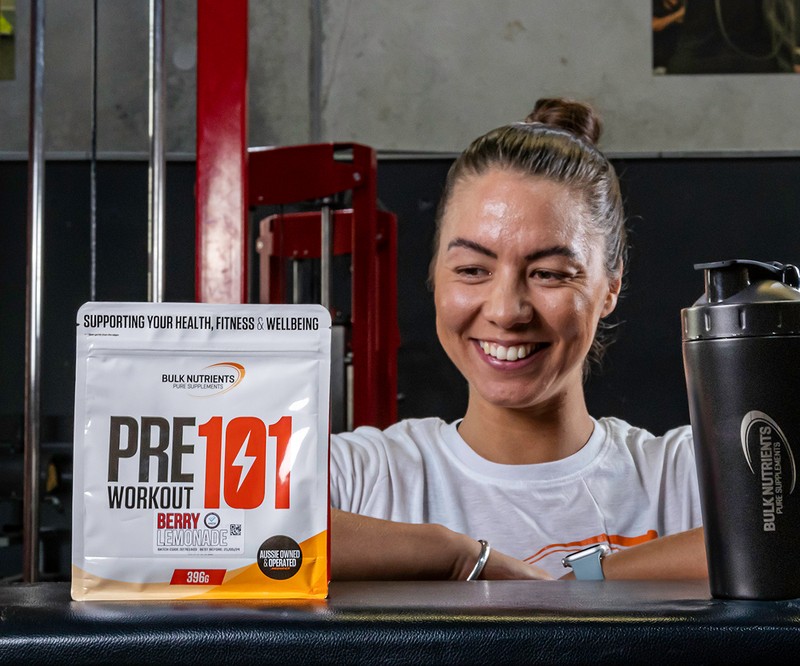
Bulk Nutrients Pre Workout 101
Posted by Nick Telesca
Estimated reading time: 8 minutes

How to Workout at Home for Beginners
Posted by Bulk Nutrients
Estimated reading time: 8 minutes
